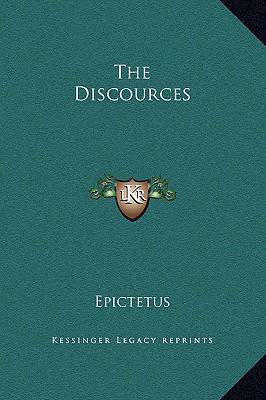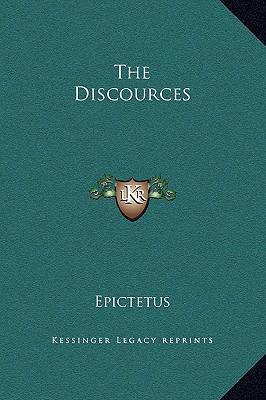
- Afhalen na 1 uur in een winkel met voorraad
- Gratis thuislevering in België vanaf € 30
- Ruim aanbod met 7 miljoen producten
- Afhalen na 1 uur in een winkel met voorraad
- Gratis thuislevering in België vanaf € 30
- Ruim aanbod met 7 miljoen producten
Zoeken
Omschrijving
The Discourses is a collection of philosophical teachings by the ancient Greek philosopher Epictetus, compiled and transcribed by his student Arrian in the 2nd century AD. The book is divided into four parts, each containing a series of lectures given by Epictetus on various topics such as ethics, morality, and the nature of the universe. Epictetus was a Stoic philosopher who believed in the importance of personal freedom, rationality, and self-control. His teachings emphasize the importance of living a virtuous life, accepting the things that cannot be changed, and focusing on what is within our control. Throughout the book, Epictetus uses anecdotes and practical examples to illustrate his points, making his teachings accessible and relatable to readers. He also emphasizes the importance of living in accordance with nature and the universal order, and encourages readers to cultivate a sense of inner peace and tranquility. The Discourses is considered a classic of Stoic philosophy and has influenced many thinkers throughout history. Its teachings continue to be relevant today, offering valuable insights into how to live a fulfilling and meaningful life.For instance, the tyrant says, ""I am master of all."" And what can you do for me? Can you give me desire which shall have no hindrance? How can you? Have you the infallible power of avoiding what you would avoid? Have you the power of moving toward an object without error? And how do you possess this power?This scarce antiquarian book is a facsimile reprint of the old original and may contain some imperfections such as library marks and notations. Because we believe this work is culturally important, we have made it available as part of our commitment for protecting, preserving, and promoting the world's literature in affordable, high quality, modern editions, that are true to their original work.
Specificaties
Betrokkenen
- Auteur(s):
- Uitgeverij:
Inhoud
- Aantal bladzijden:
- 228
- Taal:
- Engels
Eigenschappen
- Productcode (EAN):
- 9781169295384
- Verschijningsdatum:
- 10/09/2010
- Uitvoering:
- Hardcover
- Formaat:
- Genaaid
- Afmetingen:
- 178 mm x 254 mm
- Gewicht:
- 612 g

Alleen bij Standaard Boekhandel
+ 116 punten op je klantenkaart van Standaard Boekhandel
Beoordelingen
We publiceren alleen reviews die voldoen aan de voorwaarden voor reviews. Bekijk onze voorwaarden voor reviews.











